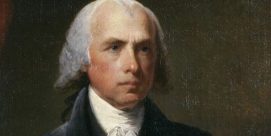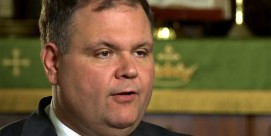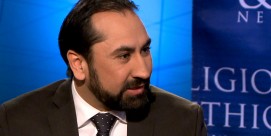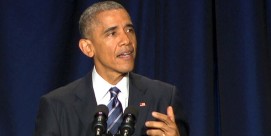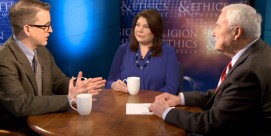Andrew Finstuen: The State of the Future
Religion surfaced in three ways in President Barack Obama’s second State of the Union address.
First, like all presidents he offered expressions of civil religion with references to America as a “light to the world” and as a “moral example” to those “who yearn for freedom, justice, and dignity.” Second, he provided brief but important comments about religious pluralism in the United States, stressing that “American Muslims are a part of our American family” and that our troops are “Christian and Hindu, Jewish and Muslim.” Third, and most central to the speech, he made promises about the future.
American Christians hold fast to promises about the future as well—though some of them caution against specific prescriptions about what that future holds while others provide exacting detail about it. William Miller, a mid-nineteenth-century religious leader and founder of the Millerites, was of the latter persuasion. He predicted the date of Jesus Christ’s return not once, but three times.
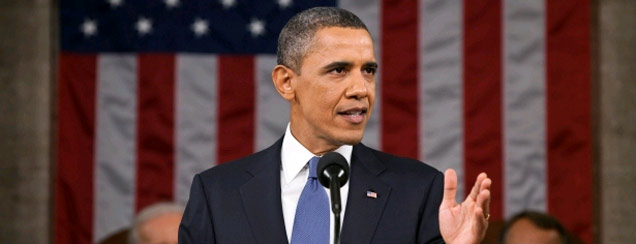
Obama is no William Miller—far from it—but his address outlined an ambitious plan for “winning the future.” But, as Obama knows and as we know, the future is unknowable. The empty seat in the House chamber that should have been filled by Gabrielle Giffords was a stark reminder of that fact. Just days ago in Tucson, Obama carefully and eloquently acknowledged the uncertainty of the future: “Scripture tells us that there is evil in the world and that terrible things happen for reasons that defy human understanding. In the words of Job, ‘When I looked for light, then came darkness.’”
The sad and unpredictable reality of Tucson is but the latest reminder among a host of unfortunate reminders about the inscrutability of the future. As a new president, Obama inherited two of the longest wars in American history and an economic crisis of staggering proportions, neither of which anyone saw coming in their full magnitude. Yet their coming was due to an American swagger that presumed to win the future in the Middle East and to insure future prosperity with reckless financial instruments. Such hubris about the future is precisely why America is behind—behind, as the president made clear, in innovation, education, and infrastructure. The problem of paying for guns and butter and bailouts forced Obama, for all of his faith in the American character and the American dream, to deliver a “malaise” speech of his own, marking all of America’s second-, third-, and even ninth-place finishes in the race for global influence.
Obama’s sense of America’s lag on these fronts, but also his sense of optimism about winning the future, was most acute and evocative when he declared that “this is our generation’s Sputnik moment.” America’s innovation gap of a half-century ago spawned unparalleled achievement—the first man on the moon—and technological advance orchestrated by the creation of NASA. The future of NASA, however, hangs in the balance. Obama, among others, has questioned the cost-effectiveness of this organization.
Yet it is entirely predictable that presidents will make promises at the State of the Union. Few citizens—including this one—would want it to be otherwise. Obama’s plans for American innovation, education, and infrastructure are crucial to the nation’s ability to meet the demands of the present and to prepare for competition with emergent world leaders such as China and India. The question is whether ”winning the future” assumes that America can manage history as it unfolds, a pretentious and dangerous position for any nation to believe in as a matter of religious or political destiny or both.
Andrew Finstuen is director of the Honors College and associate professor of history at Boise State University. His recent book, “Original Sin and Everyday Protestants: The Theology of Reinhold Niebuhr, Billy Graham, and Paul Tillich in an Age of Anxiety” (University of North Carolina Press, 2009), received the American Society of Church History’s Brewer Prize.

